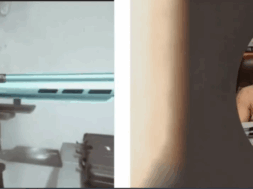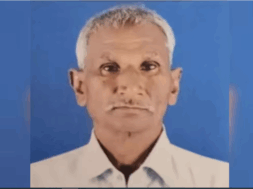
Manas Dasgupta
NEW DELHI, Aug 9: With the Chandrayaan-3 spacecraft now just 1,437 km away from the moon, the chairman of the Indian Space Research Organisation (ISRO) S Somanath has said even if all the sensors failed at the last moment, the lander would still be able to land on the moon.
Delivering a talk on “Chandrayaan-3 Bharat’s Pride Space Mission,” Somanath said even if all sensors fail while the space agency attempts to make the soft landing on the lunar surface on August 23, the lander would still be able to land. “If all the sensors fail, we will still be able to land, provided that the propulsion system works. Even if the two engines fail, we will be able to land. That’s how the design has been made,” Somanath said.
He went on to add that, this time, they have made all the systems more robust, have changed the guidance design, and introduced newer algorithms.
The ISRO on Wednesday successfully carried out another orbit reduction manoeuvre of India’s third moon mission Chandrayyan-3. The manoeuvre was performed from ISRO Telemetry, Tracking and Command Network (ISTRAC) centre in Bengaluru. The spacecraft is now just 1,437 km away from the moon.
ISRO stated: “Even closer to the moon’s surface. Chandrayaan-3’s orbit is reduced to 174 km x 1437 km following a manoeuvre performed today. The next operation is scheduled for August 14, 2023, between 11:30 and 12:30 Hrs. IST.” The fifth and final orbit reduction manoeuvre will be carried out on August 16.
With Chandrayaan-3 scheduled landing on the lunar surface, moon is due to receive a number of guests within a short period. The Chandrayaan-3 is already at its doorsteps, scheduled to descend on its surface on August 23 or 24. Russia’s Luna 25 spacecraft is preparing to begin its journey later this week, and will make a touchdown around the same time as Chandrayaan-3. Japan’s SLIM (Smart Lander for Investigating Moon) is slated to join the party soon after, with its launch scheduled for August 26.
SLIM’s landing time has not been revealed yet, but if it takes a shorter route to the moon and arrives within two weeks of its launch, this would be the first time that three spacecraft would be crawling on the lunar surface at the same time.
The Chandrayaan-3 was launched on July 14. It consists of a lander module (LM), a propulsion module (PM) and a rover. After the lunar orbit insertion on August 5, ISRO stated: “As the mission progresses, a series of manoeuvres have been planned to gradually reduce Chandrayaan-3’s orbit and position it over the lunar poles. After some manoeuvres, the propulsion module will separate from the lander while in orbit. Following that, a series of complex braking manoeuvres will be executed to facilitate a soft landing in the south polar region of the Moon on August 23, 2023.”
The PM and LM separation would happen on August 17. A series of de-boost manoeuvres is scheduled to take place before the power descent phase for soft-landing on the moon. The lander is expected to touch down on the lunar surface on August 23 at 5.47 p.m.













